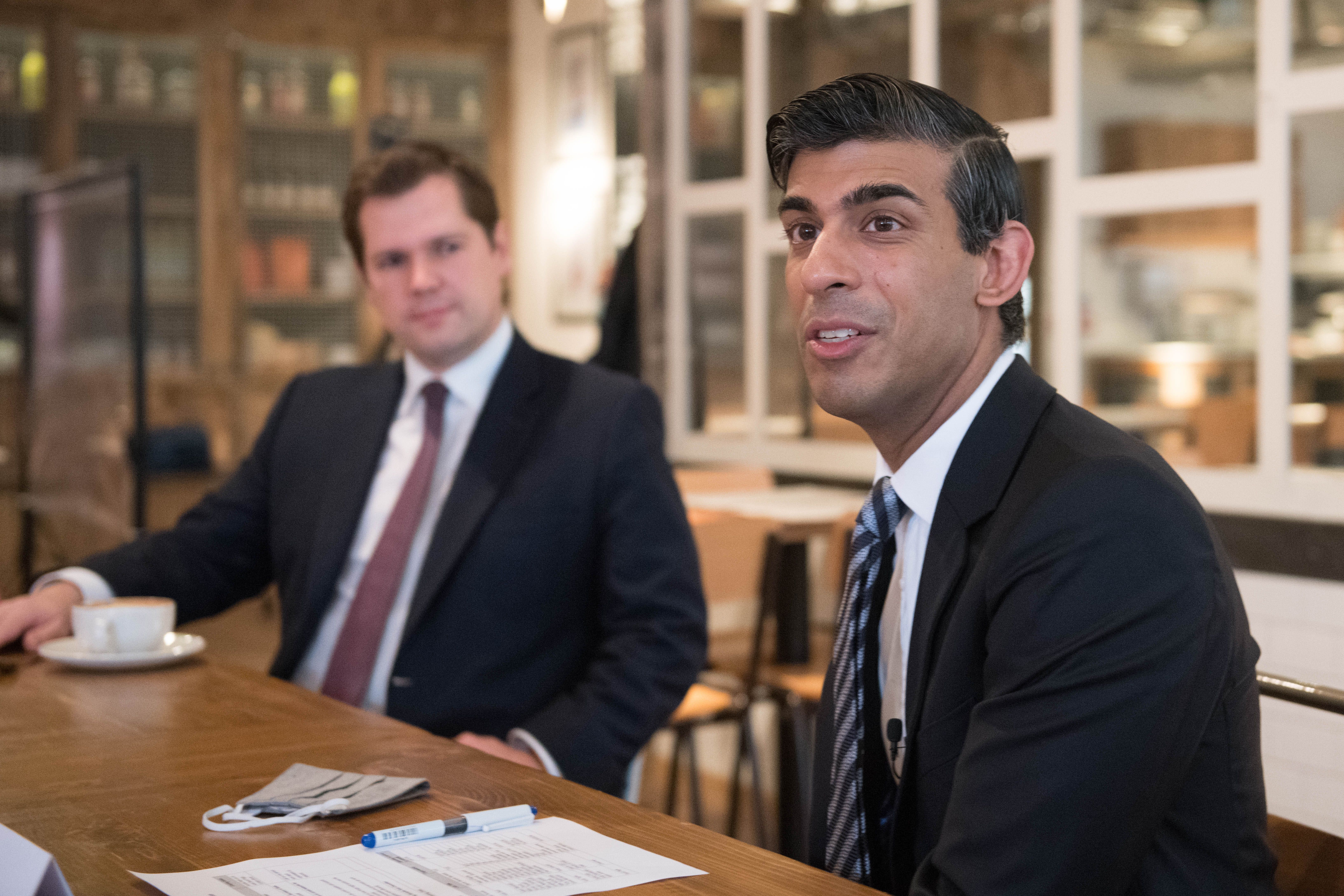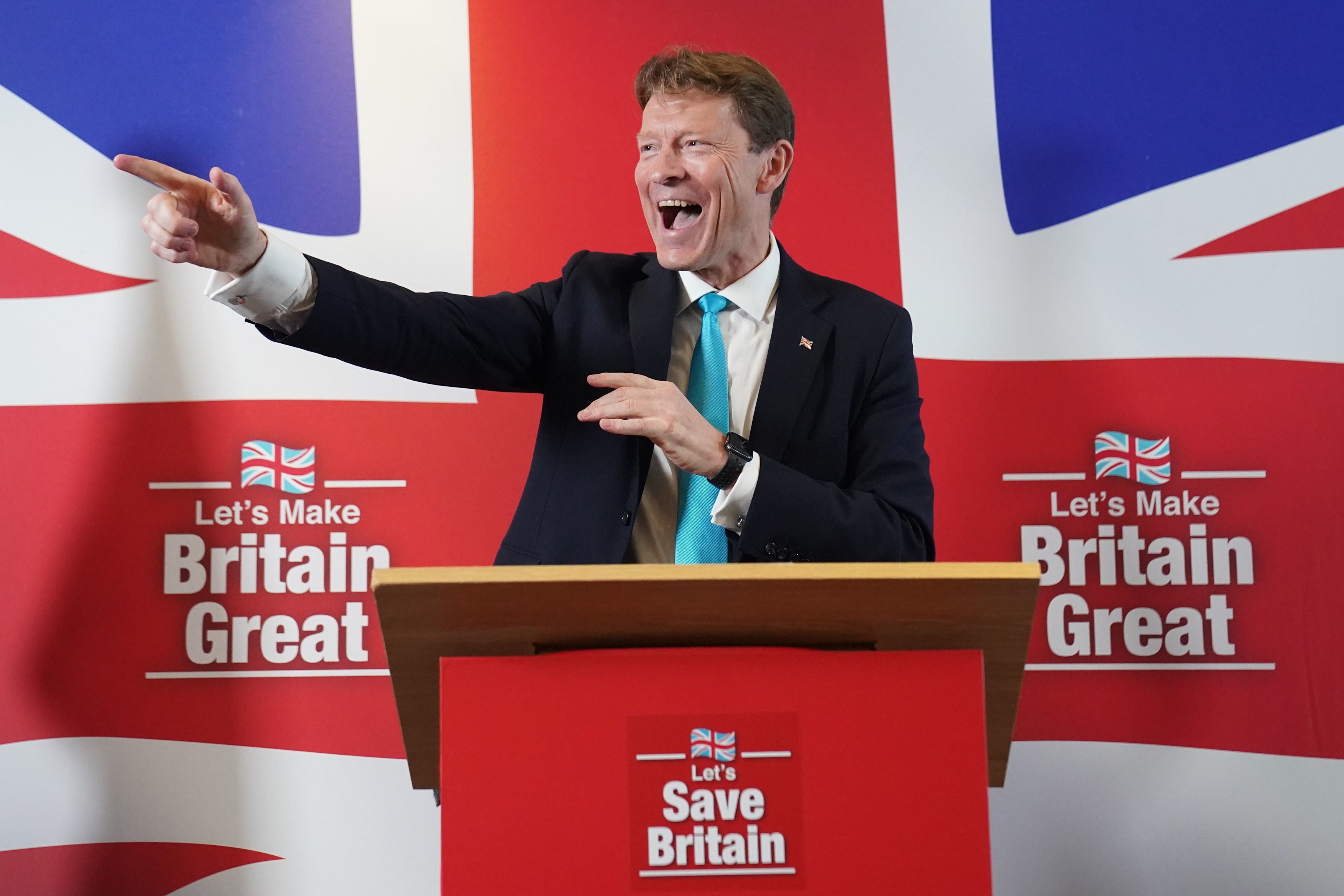So bland, cautious and moderate was the former immigration minister turned rightwing leadership hopeful Robert Jenrick when he entered the Commons that he was nicknamed “Robert Generic”.
Yet now 10 years on from winning the Newark by-election, he has reached the final two of the 2024 Conservative Party leadership campaign in a battle against Kemi Badenoch to become the champion of the Tory hard-right - but it all was very different when he was first elected.
He ticked every box of the Conservative cliche. A history graduate from Cambridge and a qualified solicitor, he joined parliament as the MP for Newark in 2014. He voted to remain in the EU, and backed Theresa May’s Brexit deal three times. He has served as a minister, in multiple departments, under every prime minister since 2017. It is no surprise that he has long been considered a moderate centrist within the party.

In fact, one of his closest friends in politics was the soon to be former Tory leader Rishi Sunak elected a year after him, but it was their spectacular falling out in December 2023 that marked the Damascus like conversion in the politics of an MP who had once appeared to define managerialism.
The end of his friendship with Sunak came when Mr Jenrick seemed like the obvious choice to keep a watchful eye over the unpredictable home secretary Suella Braverman. But instead James Cleverly was handed the job. And for good reason.
Sunak may have hoped that the teddy bear-like Mr Jenrick would keep the wild bear Ms Braverman under control – instead, after 13 months, he joined her. But instead, after witnessing the chaos and apparent unwillingness to resolve the so-called small boats crisis, Jemerick’s politics took a sharp turn to the right.
He moved from being the restraining influence on Ms Braverman to her closest ministerial ally in trying to push for extreme rightwing measures like leaving the European Convention of Human Rights (ECHR). One infamous occasion he ordered a mural created by asylum seeker children to be painted over.
It was a political journey that led him to replace the overly toxic Ms Braverman as the candidate for the right. Now he is battling it out with fellow right-winger Ms Badenoch to succeed Mr Sunak after the Tories’ worst general election defeat in history.
Anyone though looking for signs of a possible change should only look to his life story - much retold during the leadership contest - of growing up in Wolverhampton in the west midlands the sone of a man who started his own small business and his mother who was a secretary. He has leaned on the values they taught him of hard work and patriotism as he has gone forward.
It was with great stealth that Mr Jenrick crept up the list of possible leadership contenders. Despite serving in a number of high-profile departments, spanning the Treasury, health, the Home Office and housing, the former minister’s name never entered conversations about leadership until the run-up to the election. But those who have worked with him are complimentary, describing him as “deeply cerebral” and a skilled communicator, and say his political vision extends far beyond immigration.

Housing is a high priority for Mr Jenrick. Having brought forward proposed planning reforms as housing minister, and issued a plea to his successor, Michael Gove, not to water down housebuilding commitments, he breaks with some within the party who have opposed housing targets. Mr Jenrick has warned that the party will alienate young voters if it doesn’t make good on its housing pledges. With the Tories in fifth place among the under-35s, Conservative strategists say a pro-housebuilding stance could be the only way to avoid a wipeout.
But despite his seemingly centrist credentials, allies insist Mr Jenrick has always been of the right. One observer says it is the Conservative Party that has moved further left, citing David Cameron’s 2010 manifesto commitment to reduce net migration to “tens of thousands a year” – which is considerably less than the current net migration figures, which stand at 672,000 for 2023.
Though often seen as the more moderate force in the Home Office, Mr Jenrick seized headlines by ordering murals of Mickey Mouse and Baloo from The Jungle Book to be removed from the walls of an immigration detention centre because they were too welcoming. Ms Braverman and Mr Jenrick have a long-standing friendship, having studied together at Cambridge University and worked closely together in the Home Office, and they remained aligned on amendments to Sunak’s Rwanda legislation.
The Westminster rumour mill went into overdrive about his ambitions after Mr Jenrick’s sudden weight loss and new haircut earlier this year. He has since said his weight loss was down to better diet and exercise, having tried the weight loss drug Ozempic and not enjoyed it.
There is no denying that he has looked – and sounded – hungry for months, spearheading rebel amendments against Mr Sunak’s Rwanda bill and holding the pen on Daily Telegraph op-eds that were openly critical of the Tory government’s position. “In almost everyone’s eyes, he’s grown in stature,” said a senior Conservative MP and close friend of Mr Jenrick, John Hayes shortly before he launched his leadership bid.
But his record is not flawless. Back in 2020, he was involved in a cronyism scandal when he overruled a planning decision to the benefit of newspaper magnate Richard Desmond, who then donated £12,000 to the party. An issue Ms Badenoch raised in the leadership contest.

As housing minister, he was accused by some of his colleagues of “concreting over” their constituencies in his push to build more rural homes.
Mr Jenrick is also married to Michal Berkner, a wealthy lawyer. If the Conservatives wanted to choose a leader who represents a break from the last few decades, picking another Oxbridge alumnus with millions in the bank would not be wise. She is often described a the real driving force behind his leadership campaign.
Mr Jenrick and Ms Badenoch’s position in the final two confirms what many more centrist Tories feared, that the party would lurch to the right after an electoral rout. Especially as the party needs to win back Tory voters lost to Nigel Farage’s Reform.
They worry that Mr Farage’s brand of brash populism could frighten away voters.
But, with Ms Badenoch’s abrasive reputation, Mr Jenrick undeniably feels the more moderate choice of the final two. How much more safe and sensible to pick someone like Mr Jenrick, who holds similar views but seems much less scary. After all, who would be frightened by a teddy bear in a suit?
It has been far from plain sailing for Jenrick though in the contest. He was quick out of the traps and has toured more than 150 constituencies. He also led the vote of MPs in the first two rounds. But then he only managed to hold on for the final two after some trickery persuaded five MPs to switch from Jame Cleverly who was expected to come first but ultimately fell at the final hurdle.
Jenrick was hit by a poor speech at the Tory conference and then came off worse in the only televised debate between him and Ms Badenoch. As a result the bookmakers have his rival as a clear odds on favourite while he has drifted to 4 to 1 in a two horse race.
But Mr Jenrick’s supporters are still optimistic about his chances with a highly unpredictable electorate of around 100,000 Tory members and a policy platform designed to appeal to them.







